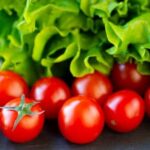“Why don’t I see home vegetable gardens in Florida” is a question that often crosses the minds of many residents and visitors to the Sunshine State. While home vegetable gardens are prevalent in other states, it’s not as common to see them in Florida. This leads us to ponder the reasons behind this disparity and what factors may be contributing to the absence of these green patches in Florida’s residential landscapes.
One possible explanation for the scarcity of home vegetable gardens in Florida could be attributed to the state’s unique climate and weather conditions. The hot and humid environment presents challenges for gardening, which may deter many individuals from pursuing their own homegrown produce. Additionally, the sandy and alkaline soil prevalent in much of Florida can make it difficult to cultivate a successful garden, further exacerbating the issue.
In addition to climate and soil quality, there may also be cultural and lifestyle factors at play that influence the lack of home vegetable gardens in Florida. The shift toward convenience and grocery store reliance may have diminished the desire or need for home gardening among Floridians. As we delve into these potential factors throughout this article, we aim to unravel the mystery behind why home vegetable gardens are not as common in the Sunshine State compared to other regions.
Climate and Weather
When it comes to home vegetable gardening, one of the biggest challenges faced by Floridians is the unique climate and weather conditions of the state. With hot and humid weather for a large part of the year, growing vegetables in Florida can be quite a different experience compared to other states. The high temperatures and intense sunlight can be both beneficial and challenging for gardeners.
Challenges of Gardening in a Hot and Humid Environment
The extreme heat and humidity in Florida can present difficulties for many types of vegetables. Some plants may struggle to thrive in such conditions, while others may simply bolt or wither under the relentless sun. Additionally, excessive rain during certain seasons can lead to overwatering and potential root rot for some crops. These factors make it essential for Florida gardeners to choose their crops carefully and employ specific strategies to protect them from the elements.
Strategies for Successful Gardening
Despite the challenges presented by Florida’s climate, there are several strategies that can help home vegetable gardeners succeed. Utilizing shade cloth or row covers during peak sunlight hours can offer protection to plants, while also conserving moisture in the soil. Selecting heat-tolerant varieties of vegetables suited for the local climate is also crucial.
Furthermore, implementing proper irrigation systems and being mindful of watering schedules can help maintain healthy growth without succumbing to excess moisture-related issues. Overall, understanding and adapting to Florida’s unique climate is key in achieving success with home vegetable gardening in the Sunshine State.
Soil Quality
In Florida, one of the main challenges that home vegetable gardeners face is the quality of the soil. The state is known for its sandy and alkaline soil, which can make it difficult to grow a wide variety of vegetables. Sandy soil has poor water retention and drainage, while alkaline soil can affect the availability of nutrients for plant growth. These factors combined can hinder the success of home vegetable gardens in Florida.
To improve soil quality, there are several strategies that Florida gardeners can employ. Adding organic matter such as compost or well-rotted manure can help improve soil structure and fertility. Additionally, using mulch on garden beds can help retain moisture and regulate soil temperature. Another approach is to create raised beds or container gardens with imported potting mix to overcome the limitations of native soil.
It’s important for aspiring vegetable gardeners in Florida to conduct a soil test before planting their gardens. This will provide valuable information about the pH levels and nutrient deficiencies in the soil, allowing gardeners to make informed decisions about amendments and fertilization. With careful attention to soil quality and preparation, it is possible to overcome the challenges posed by Florida’s unique soil conditions and achieve success with home vegetable gardening.
| Challenges | Solutions |
|---|---|
| Sandy and alkaline soil | Adding organic matter, using mulch, creating raised beds or container gardens |
| Limited water retention and drainage | Using mulch, raised beds or containers with imported potting mix |
| Poor fertility due to alkaline soil | Adding organic matter like compost or well-rotted manure, conducting a soil test for informed decision-making |
Pests and Diseases
Florida’s warm and humid climate creates the perfect conditions for a variety of pests and diseases that can wreak havoc on home vegetable gardens. From aphids and whiteflies to fungal infections and root rot, gardeners in Florida often face a significant challenge in keeping their plants healthy and thriving.
Common Pests
Some of the most common pests that plague Florida vegetable gardens include aphids, caterpillars, whiteflies, and nematodes. These pests can quickly infest plants, causing damage to leaves, stems, and fruit. In addition, the warm weather creates optimal conditions for rapid pest reproduction, making it crucial for gardeners to stay vigilant in monitoring their plants for any signs of infestation.
Disease Management
In addition to pests, Florida gardeners must contend with various plant diseases such as powdery mildew, downy mildew, and bacterial spot. These diseases thrive in the humid environment of Florida and can quickly spread from one plant to another. Implementing preventive measures such as proper spacing between plants, maintaining good air circulation, and practicing crop rotation can help minimize the risk of disease outbreaks in home vegetable gardens.
Tips for Pest and Disease Control
To effectively manage pests and diseases in a Florida vegetable garden, integrated pest management (IPM) practices are essential. This approach involves using a combination of cultural, biological, mechanical, and chemical control methods to keep pests and diseases at bay while minimizing environmental impact.
Additionally, selecting disease-resistant plant varieties suitable for Florida’s climate can greatly reduce the risk of disease outbreaks. Regularly inspecting plants for signs of pest or disease damage is also crucial so that prompt action can be taken to prevent further spread.
By understanding the unique challenges posed by pests and diseases in Florida’s climate, home vegetable gardeners can adopt proactive measures to protect their crops and achieve successful harvests despite these obstacles.
Space Restrictions
In Florida, one of the challenges to home vegetable gardening is the limited space available in urban and suburban areas. The state’s population continues to grow, leading to increased development and reduced green spaces. This urban and suburban landscape can make it difficult for residents to find suitable areas for planting and maintaining vegetable gardens.
To overcome space restrictions in Florida, aspiring gardeners can explore creative solutions such as container gardening or vertical gardening. Container gardening involves growing vegetables in containers such as pots, hanging baskets, or even small raised beds. This method allows individuals to utilize small patios, balconies, or even windowsills for vegetable cultivation. On the other hand, vertical gardening makes use of vertical spaces such as walls or fences to grow plants, maximizing the use of limited space.
Furthermore, community gardens have become increasingly popular in Florida’s urban areas. These shared gardening spaces provide individuals with the opportunity to grow their own vegetables in a communal setting.
By participating in community garden initiatives, residents can access additional space for gardening while also building a sense of community and sharing knowledge with fellow gardeners. Additionally, local governments and organizations may offer plots of land for community members to cultivate their own vegetable gardens, addressing the issue of space restrictions while promoting sustainable living practices.
Cultural Factors
In Florida, there are cultural and lifestyle factors that may influence the lack of home vegetable gardens in the state. The culture of convenience and reliance on grocery stores for produce may contribute to the limited prevalence of home vegetable gardens. With an abundance of grocery stores and farmers’ markets offering fresh produce year-round, some individuals may not see the need to grow their own vegetables.
Additionally, Florida’s diverse population includes many residents who may have immigrated from regions where gardening was not a common practice. This cultural difference could also play a role in the lower prevalence of home vegetable gardens in the state. For example, individuals from urban areas or apartment living in their home countries may not have had the opportunity to cultivate a garden and therefore may be less inclined to start one upon moving to Florida.
Furthermore, the fast-paced lifestyle that often accompanies living in urban and suburban areas in Florida can be a deterrent to starting a home vegetable garden. Many people lead busy lives with work, school, and other commitments, leaving little time for tending to a garden.
However, it is worth noting that there is a growing interest in sustainable living and self-sufficiency across the country, including in Florida. As more individuals become aware of the benefits of growing their own food, there is potential for a shift in cultural attitudes toward home vegetable gardening.
| Cultural Factor | Influence on Home Vegetable Gardens |
|---|---|
| Convenience Culture | Contributes to reliance on grocery stores |
| Diverse Population | Cultural differences affecting gardening practices |
| Fast-Paced Lifestyle | Limiting time for tending to gardens |
Community Resources
When it comes to home vegetable gardening, Florida residents may face a variety of unique challenges. Fortunately, there are numerous community resources available to support aspiring gardeners in the Sunshine State. From community garden initiatives to local gardening clubs and organizations, Florida offers a wealth of resources for those interested in starting their own vegetable gardens.
Community garden initiatives have become increasingly popular in Florida, providing individuals with the opportunity to grow their own produce in shared spaces. These initiatives not only offer access to land and gardening resources but also foster a sense of community and collaboration among participants. By joining a community garden, individuals can learn from experienced gardeners, share tips and techniques, and contribute to the local food system.
In addition to community garden initiatives, Florida is home to numerous gardening clubs and organizations that provide support and education for vegetable gardeners. These groups often host workshops, seminars, and events focused on various aspects of gardening, from soil health to pest management.
Joining a gardening club can provide individuals with valuable networking opportunities and a sense of camaraderie with fellow enthusiasts. Whether you’re a seasoned gardener or just starting out, these community resources can be instrumental in overcoming the challenges of vegetable gardening in Florida and achieving success in your gardening endeavors.
Success Stories and Tips
Florida may not be known for its home vegetable gardens, but there are certainly success stories to be found. Despite the unique challenges of gardening in the Sunshine State, many individuals have managed to cultivate thriving vegetable gardens in their own backyards. Here are some success stories and tips from experienced gardeners that can inspire and guide those interested in starting their own home vegetable gardens in Florida:
- Choose the right vegetables: Many successful gardeners in Florida emphasize the importance of selecting the right vegetables that are well-suited to the state’s climate and soil conditions. Some popular choices include tomatoes, peppers, squash, cucumbers, and herbs like basil and oregano.
- Implement smart gardening practices: Successful Florida gardeners often utilize techniques such as raised bed gardening, container gardening, and hydroponics to overcome soil quality and space restrictions. These methods can help improve drainage, optimize growing space, and reduce pest problems.
- Manage pests and diseases effectively: Dealing with pests and diseases is a significant challenge for Florida gardeners. Many successful individuals recommend using natural pest control methods, companion planting, and practicing good garden hygiene to prevent infestations.
These success stories demonstrate that it is indeed possible to have a thriving home vegetable garden in Florida with the right knowledge, preparation, and perseverance. By learning from experienced gardeners who have overcome the unique challenges of gardening in this state, aspiring vegetable growers can increase their chances of success. It’s important for individuals to be aware of these success stories and tips as they embark on their own gardening journey in Florida.
Conclusion
In conclusion, the absence of home vegetable gardens in Florida can be attributed to a combination of factors, including the unique climate and weather conditions, soil quality challenges, pests and diseases, space restrictions, cultural factors, and lack of awareness about community resources. The hot and humid climate of Florida presents challenges for vegetable gardening, while the sandy and alkaline soil requires proactive measures to improve its quality.
Additionally, urban and suburban landscapes limit available gardening space, making it difficult for individuals to cultivate their own produce. Cultural shifts toward convenience and grocery store reliance also contribute to the decline of home vegetable gardens in the state.
Despite these challenges, it is important for aspiring gardeners in Florida to not be discouraged. There are resources available in the form of community garden initiatives, local gardening clubs and organizations that can provide support and education for those interested in starting their own vegetable gardens.
By learning from successful gardeners in Florida and implementing their tips and advice, individuals can overcome these obstacles and pursue their gardening dreams in the Sunshine State. With dedication and perseverance, cultivating a thriving home vegetable garden is indeed possible in Florida.
Ultimately, by recognizing the factors that contribute to the lack of home vegetable gardens in Florida and taking proactive steps to address them, individuals can work towards creating a greener, more sustainable future for themselves and their communities. It is through small-scale efforts like home vegetable gardening that individuals can make a meaningful impact on food security, environmental sustainability, and personal well-being.
Therefore, despite the challenges posed by Florida’s unique conditions, it is worth pursuing the rewarding experience of growing one’s own fresh produce at home.
Frequently Asked Questions
Do People Have Vegetable Gardens in Florida?
Yes, many people in Florida have vegetable gardens. Due to the warm climate and abundance of sunshine, it is a popular activity for many residents. Whether it’s in their own backyard or a community garden, growing vegetables is certainly a common practice in Florida.
Why Is Gardening in Florida So Hard?
Gardening in Florida can be challenging due to the state’s unique climate and soil conditions. The high temperatures, humidity, frequent rain, and occasional hurricanes can make it difficult to maintain a successful garden. Additionally, the sandy soil found in many parts of the state may require additional amendments and fertilizers to support healthy plant growth.
Is It Illegal to Have a Vegetable Garden in Florida?
In most areas of Florida, it is not illegal to have a vegetable garden on your property. However, there have been cases where local ordinances or homeowners’ association rules restrict or prohibit the use of front yards for planting vegetables.
In 2013, there was a high-profile case in Miami Shores where a couple was ordered to remove their front yard vegetable garden due to zoning regulations. As a result, some communities have faced legal challenges regarding the right to grow food on their properties.

If you’re looking to get into vegetable gardening, or are just looking for some tips on how to make your current garden better, then you’ve come to the right place! My name is Ethel and I have been gardening for years. In this blog, I’m going to share with you some of my best tips on how to create a successful vegetable garden.





